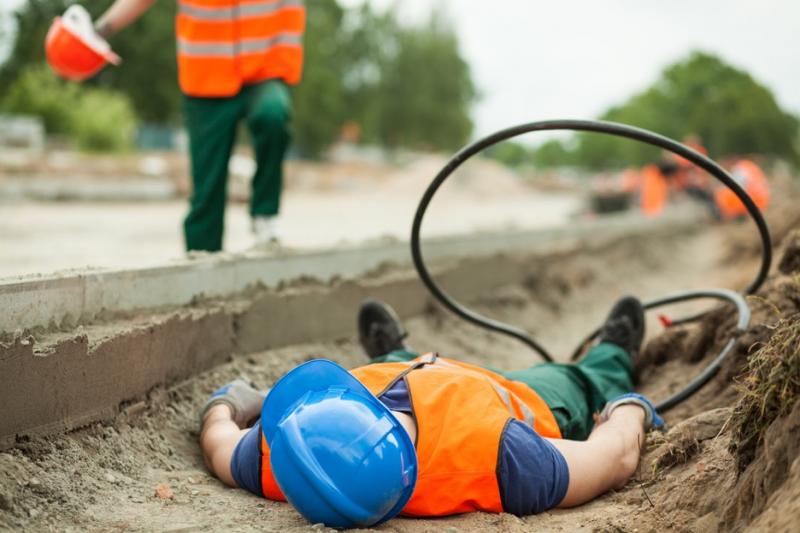Can a Workplace Accident Cause PTSD?

Workplace accidents can happen at any job, but certain professions are more dangerous than others. Gruesome accidents happen in high-risk industries like construction and agriculture on a regular basis. When this happens, the victim of the accident and the witnesses can all be left struggling with post-traumatic stress disorder (PTSD).
According to Morelli Law, each year 1,000 construction workers are killed while on the job and thousands more are injured. According to the Bureau of Labor Statistics (BLS) Survey of Occupational Injuries and Illnesses, in 2015 alone, nearly 36,000 agricultural workers were injured. It’s no surprise that so many workers are suffering from accident-related trauma.
If you’ve been injured on the job, your mental health may be involved in the process of recovery. Many individuals who have suffered from life-changing injuries also experience mental health challenges. Keep reading to learn more about how leaving these problems untreated can slow your recovery.
How Trauma Affects Injury Recovery
According to a study in the Wisconsin Medical Journal, post-traumatic stress disorder after a workplace accident can impede recovery. The injured people who participated were more likely to not be fully physically recovered after 12 months if they were still experiencing mental health challenges. Those who had recovered mentally were more likely to get over their injuries.
In addition to the physical and mental benefits having your PTSD symptoms treated can offer, there are economic benefits as well. The study also determined that early identification and treatment of PTSD can:
- Reduce medical expenses
- Reduce lost wages
- Prevent further lost work productivity
- Lower your mental healthcare costs
If you’ve been injured and you believe you may be suffering from PTSD, the sooner you get it checked out by a professional, the greater your chances of recovering as quickly as possible.
What PTSD Looks Like
When you’re already dealing with the stress of recovering from your injuries, you might not realize you have PTSD. You could mistake it as an unavoidable consequence of what you’re experiencing and not seek treatment because of it. How can you tell if you have post-traumatic stress disorder? These are the signs.
Hypervigilance
If you’re feeling anxious, on edge, and easily startled, that may be your nervous system’s response to the trauma of your accident.
Flashbacks
These are intrusive thoughts that can cause you to reexperience the emotions you felt as the accident was happening.
Nightmares
You may keep reliving the trauma of the accident in your dreams, and this can cause nightmares and insomnia.
Avoidance
You may be avoiding people, places, and situations that remind you of the accident. When this happens, even driving by the site of your accident can cause a sense of dread.
Emotional Numbness
It’s normal to feel emotional after a frightening accident that results in a serious injury. If you feel numb, it may be PTSD.

Inability to Concentrate
Not being able to focus or to enjoy activities the way you used to may also be a sign that something is wrong.
Overall, accidents on the job are experiencing a downward trend due to improved safety measures and regulations, but workers are still injured every day. If you.ve been hurt on the job and you have experienced any combination of the above symptoms for more than six weeks after your accident, it’s time to consider getting a mental health assessment.
PTSD is treatable and there is no reason your symptoms cannot improve. With treatment, you can experience a significant increase in your quality of living and get back to your normal life faster, even if it is a new normal.
More to Read:
Previous Posts:





